The start of the new blueberry harvest is a few months ahead and South African blueberry farmers are regrouping and looking ahead at new strategies. Managing director of Rainbow Superfood Tiaan Rossouw says he’s been pleasantly surprised by what he’s hearing within an industry that, he says, hit “rock-bottom” last year.
“Everywhere growers are making plans to cut costs and thinking out of the box. It’s actually an interesting time with positive things emerging from a hard time. We’re always learning lessons and we’ll definitely be very yield-focused in the coming season.”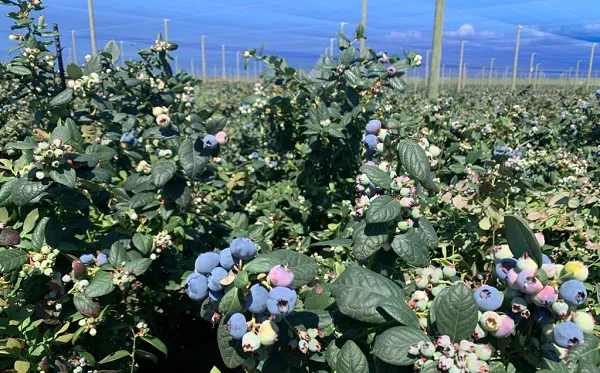
Not many blueberry growers have exited the industry; instead, Tiaan says, there is a sense of starting anew, accompanied by investment in renewal and expansion.
“I’m seeing a lot of movement to new genetics. The growers who are early to invest in better genetics are the ones who will be sustainable,” he remarks. “Genetics are very important, much more than in the past, given the global oversupply.”
He says there are now a good variety of blueberry varieties available in the country: it all comes down to yield, size and good eating quality together with crunchiness – although difficult to find in one single variety.
“The thing is that the larger the berry, the softer it often is. It’s a very fine balance you maintain between how far you can push the size spectrum on a variety and where on that spectrum a variety is optimal. A combination of varieties for good shelf life and firmness with then varieties with large berries means you can serve your market well.”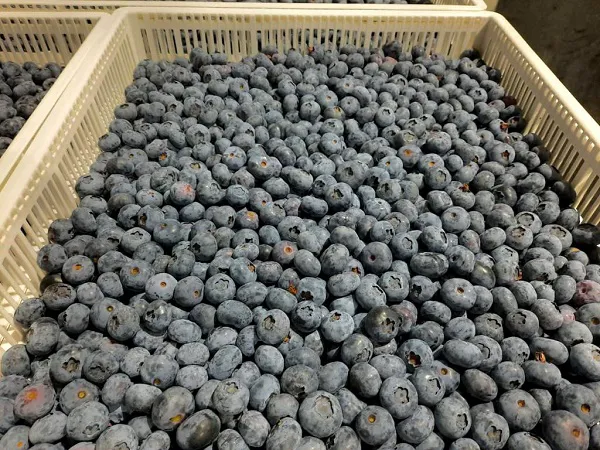
Blueberry growers are increasingly opting to take charge of their blueberries’ marketing to have more of a say in decisions than is possible within the strict export club structures which dominated during the early years of the South African blueberry industry.
“I’m told by growers that the difference between the prices they’re getting through an agent channel of their choice and through clubs is astronomically different.”
Thailand places global ban on blueberries 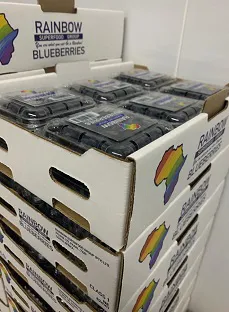 For now demand from Europe is definitely too low, he remarks, but shipping costs coming down could give some stimulus to that market.
For now demand from Europe is definitely too low, he remarks, but shipping costs coming down could give some stimulus to that market.
The extreme labour-intensiveness of blueberry packing plays a role in why Europe remains such an important market for South African blueberries.
“You have to release the pressure by doing bulk fruit. If you look at the amount of labour it takes to pack blueberries into 250g punnets, it’s just not possible to pack everything into punnets. So you need to release those large volumes and currently Europe is the only market big enough to absorb that.”
He continues: “Hong Kong, Singapore and Malaysia are very good markets but they are small markets and it doesn’t help if everyone’s sending there. We have sent to Vietnam and Indonesia, markets which could be developed further.”
China is not yet open to South African blueberries, and the blanket closure of the Thai market to all blueberry imports (for which no reason has been provided) is a pity, he says.
“I have to say there’s more interest from Africa than ever before, mostly from Angola, Nigeria and Zimbabwe. Perhaps blueberries have become more affordable and more within their reach,” he says, adding that now South African blueberry exporters need to investigate every country where they’re not currently sending.
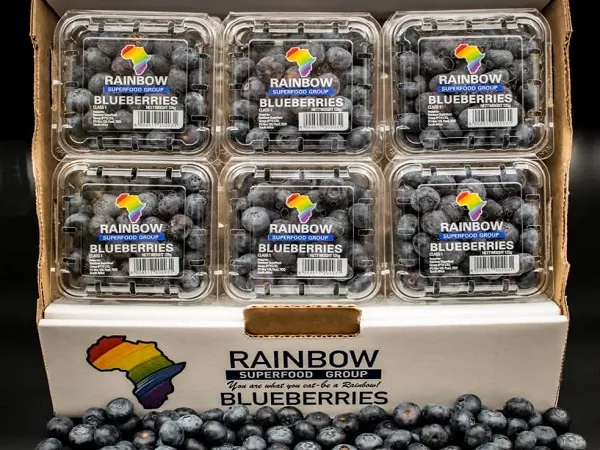
He says he draws confidence from the leadership at BerriesZA. “The organization is pushing hard to solve logistical issues and looking at strategies to pull the South African industry out of the crisis. Last season the processing sector stopped their blueberry intakes and in extreme cases, blueberries were discarded in trenches at packhouses.
This year, he says, growers have a lot of hope that it will be a better season and good relationships with buyers will be key to survival.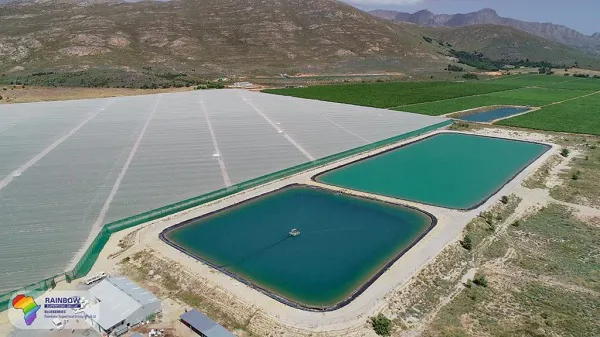
 For more information:
For more information:
Tiaan Rossouw
Rainbow Superfood
Tel: +27 61 586 5047
Email: tiaan@rainbowsuperfood.com
